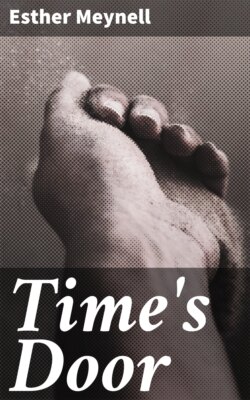Читать книгу Time's Door - Esther Meynell - Страница 8
На сайте Литреса книга снята с продажи.
V
ОглавлениеOn the Day of St. Leo the Great Paganini returned to Rome. Giovanni had marked each day as it passed and the expected, inevitable day drew nearer. Gerda, amid all the mournful matters that perforce required her attention, since her husband had been pronounced insane, had not been able to make up her mind about Paganini’s alleged visit. Giovanni had been so detailed in his statements that she half believed him at times—and then it seemed so unlikely that he, aloof and remote and in some manner inhuman, should seek them out, even though Cavatini as a violinist was known to him, that she thought the child’s overwrought imagination, the terrible night of his father’s collapse, the lack of sleep and food (for who could think of such things when Luigi was beating his head against the wall in a strong frenzy and crying out that he had better be dead?) had so worked upon Giovanni that he saw what was not there, and heard words which were never spoken by mortal lips.
So she soothed him, and said that he had probably had a dream—he must not be disappointed.
“I shall not be disappointed,” said Giovanni, holding his head up and looking at her confidently, “He will come.”
So Gerda found herself, against her real and reasoned belief, counting the days to the day appointed. She found herself regarding it with hope and with dread. Her husband’s state had been caused, as she well knew now, by the excitement and despair induced in his musician’s soul by a miraculous perfection he could never reach. She did not put his mental break-down to Paganini’s account, she knew bitterly enough, how it had been growing on Luigi, creeping onwards like a shadow, dispersed for a time by a spell of sunshine, but returning, and deepening its darkness. And the night that Paganini played had brought the final Tenebræ to his soul when the last candle was removed and darkness fell around him. She could not but associate that tragedy with the fateful figure of Paganini. Yet she realised how her husband’s shadowed mind, could it have known, would have been soothed and helped by the thought that Paganini should regard with interest his son, might even, as it seemed, bestow upon him that boon so rare and difficult of attainment, of some lessons. This possibility so fantastic only seemed imaginable in the evening hours—in the morning she never could believe it and chid herself that she did not deal more seriously with Giovanni’s determined faith, lest the overthrow of his hopes be too bitter.
The month of waiting passed with great slowness,GERDA’S THOUGHTS for change and dislocation always arrest the smooth speed of unruffled days. Each day seemed a week and each week a month to Gerda, though to Giovanni the days were swifter, as he arduously and passionately worked at his violin. But Gerda had so many arrangements to make, so many difficult decisions. At last Cavatini was safely, and as comfortably as might be, bestowed in a monastery secluded among the hills in the care of some monks who served God by the service of the saddest of the sick. There her husband dwelt in a listless melancholy that seemed to have forgotten everything, including the face and voice of his wife, everything except the unstrung fiddle over which he wept.
“We shall pray to God to heal his mind,” said Brother Organist, who was specially grieved at Luigi’s state, “And through the voice of that great Angel of Music He may heal what has been hurt.”
But though he lured the violinist to his organ-loft, Cavatini sat there as though deaf, his violin on his knee—he refused to be parted from it for a moment, and became violent if any effort were made to remove it, even while he ate—and his eyes, which used to sparkle with dark vitality, gone dull and expressionless. Gerda visited him on all permitted days. She might as well have visited a stranger.
